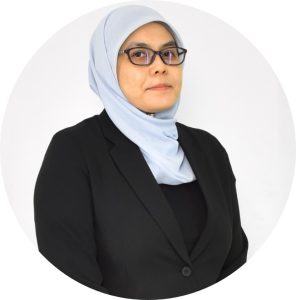-
Pathway Construction and Network Analysis Towards New Knowledge Discovery
Date : 20 - 22 August 2024
Venue : Bangi Resort Hotel
Fees : RM1,200 per person / USD300
(15 % discount for registration in a group of 3 and above)
Trainers :
Prof. Dr. Zeti Azura Mohamed Hussein (FST, UKM), Dr. Sarahani Harun (INBIOSIS, UKM),
Ts. Dr. Nor Azlan Nor Muhammad (INBIOSIS,UKM), Dr. Nor Afiqah Aleng (UMT)
& Dr. Rabiatul Adawiah Zainal Abidin (MARDI)

The Institute of Systems Biology (INBIOSIS) will organize Pathway Construction and Network Analysis Towards New Knowledge Discovery Workshop, for postgraduate students and researchers from ICGEB member states. It will be held from 20 - 22 August 2024 in Bangi Resort Hotel, generously funded by the ICGEB Training Grant. More information about this Course can be found here https://www.icgeb.org/new-knowledge-discovery-malaysia-2024/ .
Workshop Outline
This introductory workshop will focus on:
-
Introduction to Pathway and Network Analysis:
-
Brief overview of why pathway and network analysis is important in genomics
-
Introduction to key concepts and principles in pathway analysis
-
-
Database and Tools for Pathway and Network Analysis:
-
Explanation of protein-protein interaction (PPI) databases such as STRING and GeneMANIA
-
Demonstration of how to construct PPI networks using these databases
-
Practical exercises on retrieving and interpreting data from these databases
-
-
Mapping Genes onto Pathways:
-
Overview of the Kyoto Encyclopedia of Genes and Genomes (KEGG) database
-
Step-by-step guide on how to map identified genes onto KEGG pathways
-
Hands-on exercises for participants to practice mapping genes onto pathways
-
-
Functional Annotation of Genes/Proteins:
-
Explanation of functional annotation and its importance in interpreting gene/protein lists
-
Introduction to tools and databases for functional annotation.
-
Practical session demonstrating how to perform functional annotation on gene/protein lists
-
-
Gene Ontology (GO) Enrichment Analysis:
-
Overview of Gene Ontology and its significance in understanding gene functions
-
Explanation of GO enrichment analysis and its application
-
Hands-on exercises on performing GO enrichment analysis on gene/protein lists
-
-
Pathway Analysis and Visualization:
-
Comprehensive overview of pathway analysis methods
-
Introduction to tools and software for pathway analysis
-
Practical session on conducting pathway analysis and visualizing results
-
Upon the completion of this workshop, participants will be able to:
-
Construct pathways and PPI network from the list of genes/ proteins
-
Perform GO and pathway analysis on the constructed pathway and PPI network (and use it for hypothesis generation)
-
Understand a complete workflow of data acquisition, pathway construction, pathway analysis, and data interpretation
-
Predict gene function and extend a gene list
Who should attend
Anyone interested in pathway analysis and its applications (researchers, academicians, and students), especially biologists from beginner to advanced levels.
List of Speakers and Trainers

-
Prof. Dr. Zeti Azura Mohamed Hussein is a Professor in Bioinformatics at the Department of Applied Physics, Faculty Science and Technology. She investigates the relationships between disease genes and disease networks using gene network analysis, pathway analysis and network analysis to understand disease pathobiology in human and plants alike which can’t be fully annotated using a single type of data thus the inclusion of big data analysis and omics data integration. Prof. Zeti’s research demonstrates how integrative analysis on omics data can be used to unravel new important knowledge and provide answers on the biological problems of interest. If you are interested to collaborate with her, or be part of her research group, please drop her an email to zeti.hussein@ukm.edu.my or visit her website at https://zetibioinfolab.wordpress.com

-
Dr. Sarahani Harun is currently a research fellow at the Institute of Systems Biology (INBIOSIS). She graduated from the Universiti Kebangsaan Malaysia where she earned a Bachelor in Bioinformatics, Master in Molecular Biology and PhD in Systems Biology. Her research interest involves computational biology that includes pathway analysis in secondary metabolites, i.e., glucosinolates and cyanogenic glycosides to unravel potential genes in the respective biosynthetic pathways. This computational pipeline can be used for new gene discovery to establish genetic resources for crop improvement. She is also interested in analyzing the transcriptome data generated from the oil pest, bagworm (Metisa plana) which is a collaborative project with Felda Global Ventures R&D. The identification of the key regulatory genes from the study would facilitate in controlling the pest infestation in oil palm. Dr. Sarahani can be contacted via email; sarahani@ukm.edu.my.

-
Ts. Dr. Nor Azlan currently is the Head of Centre for Bioinformatics Research, Institute of Systems Biology (INBIOSIS), Universiti Kebangsaan Malaysia. He joined INBIOSIS as a research fellow in October 2015. His expertise is in bioinformatics and computational systems biology. His research focus is on the application of omics technologies to unravel new genes and pathways for the development of precision biotechnology. His current main organisms of interests are insect pests, including bagworm (Metisa plana), red palm weevil (Rhynchophorus ferrugineus) and cocoa pod borer (Conopomorpha cramerella). The long-term aim is to analyse the genome, transcriptome, proteome and metabolome of these species and use omics integration techniques to develop new methods of controlling them. Expressions of interest for research collaboration and activity with Ts. Dr. Nor Azlan can be expressed via his email, norazlannm@ukm.edu.my.

-
Nor Afiqah Aleng is a lecturer under Bioinformatics program at the Institute of Marine Biotechnology (IMB), Universiti Malaysia Terengganu (UMT). She obtained her Bachelor in Biotechnology from Pennsylvania State University, followed by a Master in Biotechnology from UMT. She later earned her Doctoral degree in Systems Biology from UKM. Her research interest is computational systems biology, where she focuses her study on the application of network biology and omics integration in aquaculture species. She is also interested in elucidating the pathways involved in diseases of the aquaculture species, especially crustaceans. Please feel free to contact Dr. Afiqah Aleng (afiqahaleng@umt.edu.my) for research and industrial projects collaboration.

-
Dr. Rabiatul Adawiah Zainal Abidin is a Senior Research Officer at the Agriomics and Bioinformatics programme, Biotechnology & Nanotechnology Research Centre, Malaysian Agricultural Research and Development Institute (MARDI). She obtained her PhD in Systems Biology from the Universiti Kebangsaan Malaysia in 2021 and BSc in Bioinformatics from University of Malaya in 2006. Dr. Rabiatul uses bioinformatics approach and omics technologies to unlock the wealth of information of local crops (rice, papaya, banana and durian) and livestock. Sometimes, she has been invited as a guest lecture in university to share her experiences for using bioinformatics in agricultural research. She loves data and enjoys research and science environment, especially in agricultural bioinformatics. Dr. Rabiatul can be contacted via email; rabiatul@mardi.gov.my
Programme
20th August 2024 (Tuesday)
| Time | Activity |
| 9.00 am | Introduction to the workshop - Dr Sarahani (30 minutes) |
| 9.30 am | Tea Break |
| 10.00 am | Lecture 1: Introduction to pathway and network biology - Prof. Zeti (2 hours) |
| 12.00 pm | Lunch break |
| 2.00 pm | Lecture 2: Introduction to pathway databases/ tools and data integration
Practical 1 : Leveraging pathway databases and tools – Dr Sarahani (1 hour) - *different databases producing different identifiers |
| 3.00 pm | Practical 2: Data preparation using omics datasets - Dr Nor Azlan (2 hour) |
| 5.00 pm | Tea Break |
| 5.15 pm | END OF DAY 1 |
21st August 2024 (Wednesday)
| Time | Activity |
| 9.00 am | Lecture 3: Introduction to Cytoscape and related databases
Network analysis - clustering & enrichment analysis – Dr Sarahani (30 minutes)
|
| 9.30 am | Tea break |
| 10.00 am | Practical 3: Cytoscape – pathway construction and editing (STRING, GeneMANIA, KEGG) – Dr Afiqah (1 hour & 30 minutes) |
| 12.30 pm | Lunch break |
| 2.00 pm | Practical 4: Network analysis - Topology, clustering and functional enrichment analysis - Dr Afiqah |
| 4.30 pm | Tea Break |
| 5.00 pm | END OF DAY 2 |
22nd August 2024 (Thursday)
| Time | Activity |
| 9.00 am | Lecture 4: Introduction to the workflow Dr Sarahani (30 minutes) |
| 9.30 am | Tea Break |
| 10.00 am | Practical 5: Case study: Building biological network from omics dataset – Dr Adawiah (1 hour & 30 minutes) |
| 12.30 pm | Lunch break |
| 2.00 pm | Practical 6: Case study: Case study: Building biological network from omics dataset, cont– Dr Adawiah (2 hours) |
| 4.00 pm | Summary, discussion and wrap-up - Dr Sarahani (30 minutes) |
| 4.30 pm | Tea Break |
| 5.00 pm | END OF WORKSHOP |

